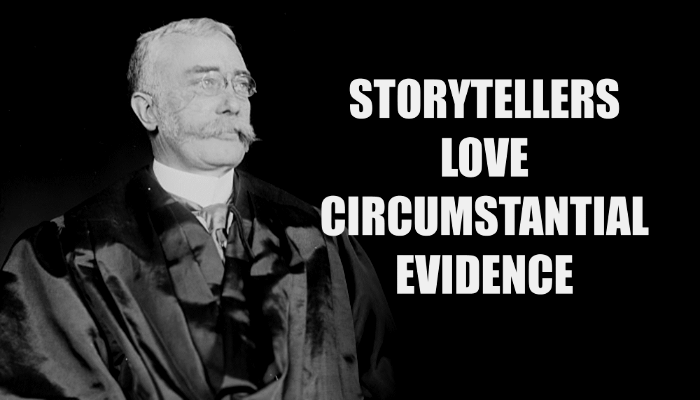
When I was a boy, I had a dog named Happy. Don’t judge.
Happy wasn’t allowed on the furniture and he knew it. But, whenever left alone in the house, he took advantage of the situation by sleeping on the couch. Although we never had any hard evidence of his canine transgressions, like an eye-witness or a photograph, we had plenty of circumstantial evidence.
- He acted guilty.
- His favorite spot on the couch felt warm to the touch.
- He was the only living being in the house all day.
Storytellers love circumstantial evidence because all stories are based on it. Think about the situation in the terms of the StoryHow Mantra:
A story is the result
of people pursuing
what they want
- Happy wanted a comfortable place to sleep.
- We didn’t want him on the furniture.
- He chose to do it anyways, thus setting up a story for when we returned later in the day.
Characters (people or sleepy dogs) are the seeds of any story. Storytellers plant them in the fertile ground of circumstance and then water both with what each wants.
Consider the circumstances that brought your customers to you. Which ones can you use to build your next business story?
Photo Credit: Bain News Service, Publisher. Judge W.W. Foster in judicial robe. , 1910. date created or published later by Bain. Photograph. Retrieved from the Library of Congress, https://www.loc.gov/item/ggb2004004866/